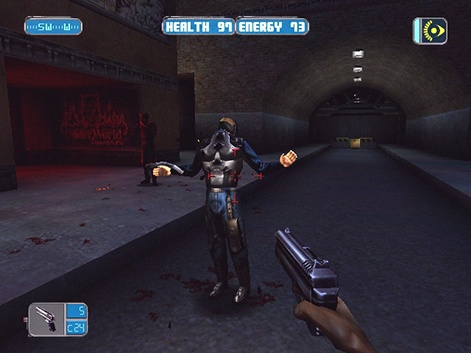WHY EPIC MICKEY IS A HIGH POINT OF WARREN SPECTOR'S CAREER — IGN UNFILTERED
"I am really proud of that game."
In addition to creating Deus Ex, Warren Spector is the designer behind
Epic Mickey, a series that, despite its criticisms, he sees as a high point in his career.
"I am so proud of that game. Deus Ex and Epic Mickey are, without question, the high points of my career," Spector said on the latest episode of our monthly interview show
IGN Unfiltered. "The opportunity to bring Oswald the Lucky Rabbit, Walt Disney's first star, back to the world—the fact that that happened in a game, I mean, think about what that says about Disney."

Oswald the Lucky Rabbit and Mickey Mouse in Epic Mickey 2
Additionally, Oswald is now featured at Disney California Adventure, which Spector noted can be credited to Epic Mickey. He also said he recently purchased an Oswald mug that has Oswald's girlfriend Ortensia on the back, a character that his team made up for Epic Mickey.
"I suspect no one at Disney realizes that we made Ortensia up for our game. I'm sure people at Disney think Ortensia is a part of Disney's history," he said. "We made her up. So the fact that Oswald is back, and the fact that Ortensia is now a part of Disney's history, is because of a video game. That's very cool."
The fan response he received for Epic Mickey is another reason why the game is so special to him. "I got more fan mail about Epic Mickey than any game I've ever worked on," he said. "It was more heartfelt fan mail than any game I've ever worked on. We touched people in a way that games just never touch people."
Spector said he's heard from people who told him the game helped get them through chemotherapy. He also shared a story about one kid with cerebral palsy who played the game as part of his physical therapy after undergoing surgery. Additionally, he received a letter from the father of a 16-year-old autistic girl who didn't engage with the outside world, saying she insisted that he send Spector her drawing of Mickey and Oswald looking up at a starry sky.
"Screw Metacritic. Screw the gamers who didn't like our camera. Screw everybody. I am really proud of that game, and I am really proud of the team that made it, and nothing is going to ever sway me from feeling like that was one of the high points of my career," he added.
A sequel to Epic Mickey, titled
Disney Epic Mickey 2: The Power of Two, was released two years after the first game, in November of 2012. Junction Point Studios, the development team behind the series,
closed shortly after the sequel's launch.
Be sure to check out our full
IGN Unfiltered interview with Spector to hear more from the brilliant game designer, including his thoughts on the future of AAA games and the growing indie scene.








![The Year of Incline [2014] Codex 2014](/forums/smiles/campaign_tags/campaign_incline2014.png)























